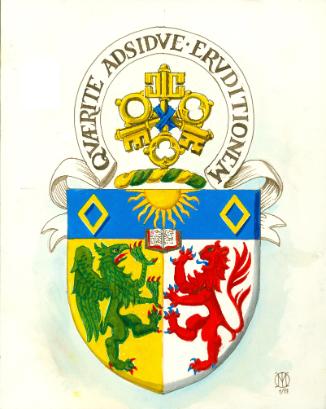Teaching format
Students at St Andrews for their first or second year will be taught through whole-class lectures (65 to 135 students), screenings and small group tutorials (5 to 12 students). Most teaching on film takes place in a lecture theatre equipped for the evening film screenings that accompany lectures.
Lectures at St Andrews are given by all members of the Department, enabling students to hear academics at the cutting edge of the discipline. Students receive the best and latest ideas and material to research and evaluate. Tutorials are an opportunity for students to discuss and develop their thinking in a small and friendly atmosphere, guided by a professional expert.
Extensive use is made of the University’s specialist library resources, including one of the best collections of international cinema on DVD, holding over 9,300 AV materials and including some extremely rare films and holdings.
In third or fourth year, teaching moves away from large group lecturing. Class sizes vary between modules, but students typically meet in groups of about 5 to 17 students for longer classes in which they are expected to participate fully.
In addition to these classes, students at St Andrews are expected to undertake substantial independent, but guided, work outside of the classroom. Typically, this will involve:
- working on individual and group projects
- undertaking research in the library
- preparing coursework assignments and presentations
- preparing for examinations.
At St Andrews, you will be taught by an experienced teaching team with expertise and knowledge of Film Studies. Postgraduate research students who have undertaken teacher training may also contribute to the teaching of classes and seminars under the supervision of the module coordinator.
You can find contact information for all film studies staff on the Department of Film Studies website.
In addition to your studies in the School, optional academic support is available through practical study skills courses and workshops hosted within the University.
The University’s Student Services team can help students with additional needs resulting from disabilities, long term medical conditions or learning disabilities. More information can be found on the students with disabilities webpage.
Assessment
Modules in Film Studies at St Andrews are assessed by a balance of coursework and written examinations held at the end of each semester during a dedicated exam diet with revision time provided beforehand. Coursework includes:
- research essays
- class presentations
- source analysis.
At Honours level, the modules are entirely assessed on the basis of coursework.
The Department of Film Studies provides feedback on every assessment, with a view to improving your performance in future, and aims to provide feedback on assessments and coursework within three weeks.
Undergraduates at the University of St Andrews must achieve at least 7.0 on the St Andrews 20-point grade scale to pass a module. To gain access to Honours-level modules, students must achieve the relevant requisites as specified in the policy on entry to Honours and in the relevant programme requirements. Please note that some Schools offer qualified entry to Honours, and this will be clearly specified in the programme requirements. To find out the classification equivalent of points, please visit the common reporting scale webpage.
